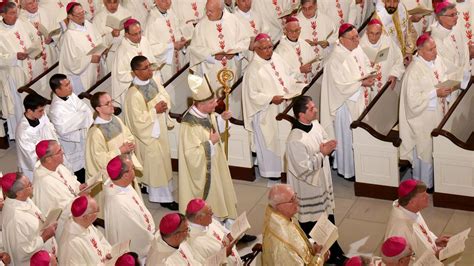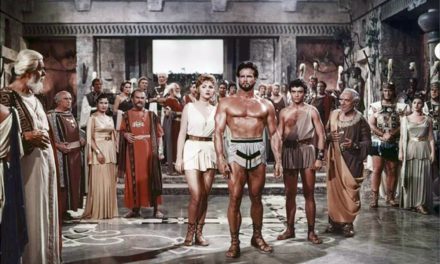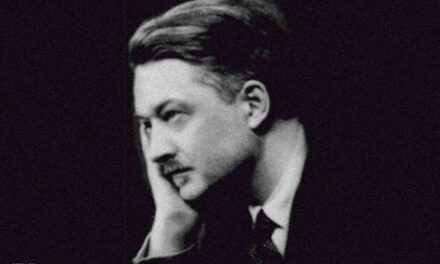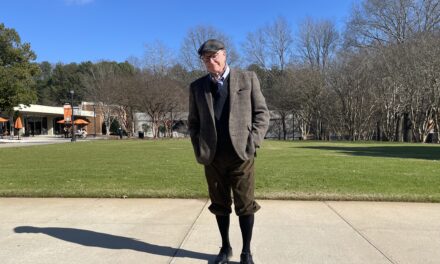Cardinal Daniel DiNardo has closed the final public session of the November 12-14 meeting of the United States Conference of Catholic Bishops (USCCB). Acknowledging disappointment and lack of “action steps,” the Cardinal nevertheless expressed hope that the interference in the meeting by Rome and the derailed votes on action promised the laity by the USCCB would produce more tangible action sometime next year.
Unlikely.
More likely, the USCCB will never take the “action steps” demanded by and promised to the laity regarding formerly-Cardinal McCarrick.
I asked in my Second Open Letter to the USCCB Regarding the Cardinal McCarrick Scandal prior to this meeting: Will you decide to pursue the investigation, reporting, and disclosure of the TRUTH regarding the former Cardinal’s rise to power and immunity to consequences for sexual predation, or will you decide to deny the TRUTH to the laity (and yourselves) with delays, excuses or half-hearted measures?
The answer is in: The laity will never know “who knew what when” from the USCCB regarding formerly-Cardinal McCarrick. The USCCB is conducting no broad, inclusive investigation. What limited information the American dioceses reviewing their files on McCarrick gather must, it appears, first go to Rome. What official information laity receives will come, if ever, only from Rome and that will be months, likely years, from now.
This is not the result many of our bishops wanted.
Many bishops rose to the microphone and made frank statements in favor of a lay-lead investigation into how formerly-Cardinal McCarrick rose to the highest position in the American Catholic Church. He rose to power despite abusing at least one minor, provoking at least two civil settlements for sexual harassment and grooming uncounted seminarians and young priests for his sexual pleasure.
“Who knew what when” about McCarrick so dominated the call of these brave bishops, Cardinal DiNardo acknowledged that in all the letters and feedback he has received, the “McCarrick thing” dominates and does not seem to be going away.
While most of those bishops who spoke appeared genuinely concerned about McCarrick’s victims and the outrage of the laity, the truth was not a priority of the body. The body functioned to avoid even an appearance of disagreement with Rome.
This was not a collegial body operating to identify the scope of McCarrick’s harms, initiate steps toward healing and restore the USCCB credibility so wantonly wasted by McCarrick. This was, rather, a highly manipulated body whose focus was repeatedly called to a subservient deference to the Holy Father regardless the delays, silence, and intentions of Rome and regardless the impact on sexual abuse victims and disillusioned laity.
1. The Hurdles of Complaining Against a Bishop.
Had the USCCB wanted to listen, two voices offered stirring evidence of the stress and emotional hurdles of pursuing a complaint against a bishop. Mr. James Grein spoke outside the USCCB Baltimore meeting at a rally organized by Church Militant, and Bishop Steven Biegler spoke at least twice inside the USCCB meeting from his experience as a bishop in Cheyenne Wyoming. Mr. Grein was only 11 years old when McCarrick began sexually abusing him. Bishop Biegler had not yet been ordained a bishop when he found himself leading an investigation of sexual abuse allegations against longtime Bishop Joseph Hart, Biegler’s predecessor in Wyoming.
Both spoke emotionally of the hardship they suffered pursuing allegations against a bishop.
Mr. Grein spoke on Tuesday in an outdoor pavilion, under dreary, drizzling skies. He was visibly shaking. As LifeSiteNews reported,
“Previously, he felt there was ‘no place’ for him to report his abuse, and that nobody would believe him even if he were to report it. Grein said he was motivated to go public Tuesday as a way to inspire other victims….I do this today so that others like me have the strength to come forward. Think about what you can do to help others. This movement must continue to gain strength,’ he said.”
On Wednesday, a soft-spoken Bishop Biegler, seemingly near tears, told his brother bishops of the pressures brought against him as he pursued sexual abuse allegations against Bishop Hart. These pressures came from laity trying to protect the former Wyoming diocesan bishops but, Bishop Biegler emphasized, the pressures came, too, from his fellow bishops.
These were the voices begging to be heard.
2. Rome Nixes a Lay-Lead Commission; the Metropolitan Is Seeded As An Option
The substantial labor of the USCCB Executive Committee in preparing a proposal to vote for a lay-lead commission to investigate sexual allegations against a bishop, received through an independent hotline, went largely to waste.
Shocking to many bishops, but not all, Cardinal DiNardo announced that the USCCB had received an instruction from Rome NOT to vote on the lay-lead commission proposal. Instead, the bishops were to wait for the global meeting on sexual abuse convened by the Holy Father with all the presidents of the Episcopal conferences in February.
It’s important to note that serving on the Congregation of Bishops who sent the instruction are both Cardinal Blase Cupich and Cardinal Donald Wuerl. In other words, both Cardinals would have been privy to the instruction before it was sent to the American bishops.
Thus, Cardinal Cupich’s odd remark at the meeting can be understood as a flimsy rationale for what he, Cardinal Wuerl, and the other bishops on the Congregation of Bishops thought about their restriction. He said Rome’s restriction was a sign that “the Holy See is taking the abuse crisis seriously.”
It also comes as no surprise that Cardinal Cupich apparently circulated at the meeting a detailed alternative proposal, which must have been prepared in advance or with expertise on standby. Cardinal Cupich proposed that, instead of a combination hotline/lay-lead investigation commission, complaints against a bishop should go to that bishop’s Metropolitan for review, presumably with the assistance at some point of his lay review board. A Metropolitan is an archbishop with limited authority over the bishops of the dioceses in his region, referred to as suffragans. If the accused bishop happens to be the Metropolitan, then the complaint would go to the senior suffragan.
The proposal quickly provided support to bishops interested in expanding the powers of the Metropolitan or concerned by the cost of the hotline/lay-lead commission proposal. DiNardo concluded that both options should proceed for further development and consideration.
This was a bizarre development. Only one bishop seems to have noticed that the Metropolitan alternative preserved the high emotional and stress hurdle of pursuing sexual complaints against a bishop. Also, such a plan would not likely have changed any aspect of formerly-Cardinal McCarrick’s ascendancy and immunity for sexual abuse since he was, in fact, a Metropolitan. Since the Archdiocese of Washington, DC has only one suffragan, St. Thomas, its bishop could hardly be expected to pursue diligently complaints against his Metropolitan.
3. Non-collegiality
Remarkably, the bishops seemed to tolerate the derailment of laboriously prepared votes, the last minute introduction of information easily provided earlier and the gross information inequality between themselves. Elements in the body operated more like a well-orchestrated partisan power play to derail votes, cause delay, and seed alternative proposals than a body concerned by the malfeasance and victims of their former, most prominent spokesperson.
Cardinal Joseph Tobin twice approached the microphone to speak, only to “share” information which then became the basis upon which other bishops argued against pending proposals.
Bishop Earl Boyea’s “one little task” to assure the release of as many McCarrick-related documents as feasible – a task Bishop Boyea asserted was owed to the seminarians who McCarrick harmed – fell to such a fate. The proposed language was projected for discussion and vote.
“Be it resolved that the bishops of the United States Conference of Bishops encourage the Holy See to release all the documentation that can be released consistent with canon and civil law regarding the misconduct of Archbishop McCarrick.”
As the discussion began, Cardinal Tobin rose with a “point of information” – shared, he believed, with the Chair. Cardinal Tobin then read extensively from an October 6, 2018 “communiqué,” outlining the intentions of Rome with respect to proceedings against McCarrick, to sharing the conclusions of those proceedings and to combining all information on McCarrick for objective evaluation within its “historical context.”
Based on this excerpt – apparently unfamiliar to the other bishops and not made available to the bishops or the observers — assertions were then made that the proposed resolution was unnecessary since the Holy See already promised to release information.
To pass such a resolution, in light of the communiqué, opponents of Bishop Boyea’s resolution urged, challenged the credibility of the Pope himself. The resolution failed, 137-83.
Had the Bishops been given the text and an opportunity to read it, it would have been apparent that the communique did not address the release of the McCarrick documentation – only conclusions from a pending matter. More, the notice from the Holy Father portends a substantial, lengthy process with regard to additional accusations and offers no commitment to release any documentation or even additional conclusions.
Set in the context of the communique, Bishop Boyea’s proposed resolution was an appropriate and respectful request to the Holy Father based on the needs of McCarrick’s victims, the American laity and commitments made to both by the USCCB.
“The Holy See will, in due course, make known the conclusions of the matter regarding Archbishop McCarrick. Moreover, with reference to other accusations brought against Archbishop McCarrick, the Holy Father has decided that information gathered during the preliminary investigation be combined with a further thorough study of the entire documentation present in the Archives of the Dicasteries and Offices of the Holy See regarding the former Cardinal McCarrick, in order to ascertain all the relevant facts, to place them in their historical context and to evaluate them objectively.”
Nevertheless, arguments that Bishop Boyea’s release resolution was redundant, disrespectful and unnecessary prevailed.
As the USCCB meeting closes, the “McCarrick thing” remains an albatross around the neck of the USCCB. It’s not going away. It hangs, a dead-weight reminder that the bishops have chosen obsequious deference to Rome to enfold McCarrick into a protective, prolonged silence, a sexual offender most of them now carefully call “Archbishop,” preserving his inclusion as one of them while leaving his victims outside in the cold Baltimore rain.
St. Catherine of Siena, Pray for Us















How about we the laity conduct our own investigation? After all that’s how the whole thing came to light in the first place, both in 2002 and 2018. Tired of waiting around for mealy mouth company men to stand up for the TRUE mission statement of their company, instead of simply leeching from it a salary to finance their “lifestyles.”